Intro
Discover the Comprehensive Metabolic Panel (CMP) alt test, a diagnostic tool assessing kidney function, liver health, and electrolyte balance, using related tests like Basic Metabolic Panel (BMP) and Lipid Profile for accurate diagnosis and treatment of metabolic disorders.
The Comprehensive Metabolic Panel (CMP) is a widely used blood test that provides valuable information about a person's metabolic health. It is often ordered by healthcare providers as part of a routine check-up or to monitor various health conditions. In this article, we will delve into the details of the CMP test, its components, and what the results can reveal about a person's health.
The CMP test is a comprehensive panel that measures various components of the blood, including electrolytes, glucose, and liver and kidney function. It is commonly used to diagnose and monitor conditions such as diabetes, kidney disease, and liver disease. The test can also help identify potential health risks, such as high blood pressure and cardiovascular disease. With the increasing prevalence of metabolic disorders, the CMP test has become an essential tool in healthcare.
The CMP test is usually performed in the morning, after an overnight fast, to ensure accurate results. The test requires a blood sample, which is then sent to a laboratory for analysis. The results of the CMP test can provide valuable insights into a person's metabolic health, including their glucose levels, electrolyte balance, and liver and kidney function. By analyzing the results of the CMP test, healthcare providers can identify potential health risks and develop strategies to mitigate them.
Components of the Comprehensive Metabolic Panel
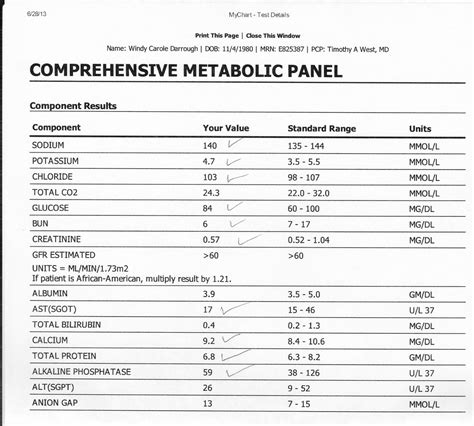
The CMP test typically includes 14 different measurements, which can be grouped into several categories. These categories include electrolytes, glucose, liver function, kidney function, and other components. The electrolytes measured in the CMP test include sodium, potassium, chloride, and carbon dioxide. Glucose levels are also measured to assess blood sugar control. The liver function tests include measurements of alanine transaminase (ALT), aspartate transaminase (AST), and alkaline phosphatase. The kidney function tests include measurements of blood urea nitrogen (BUN) and creatinine.
Electrolytes and Their Importance
The electrolytes measured in the CMP test play a crucial role in maintaining various bodily functions. Sodium, for example, helps regulate the amount of water in the body, while potassium is essential for maintaining a stable heart rhythm. Chloride helps maintain fluid balance, and carbon dioxide is a byproduct of respiration. Abnormal electrolyte levels can indicate various health conditions, such as dehydration, kidney disease, or hormonal imbalances.Glucose and Blood Sugar Control
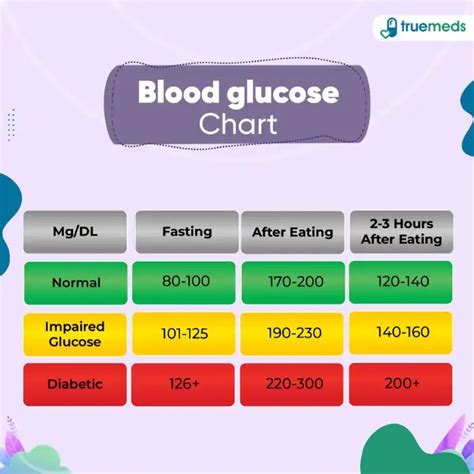
The glucose measurement in the CMP test is used to assess blood sugar control. High glucose levels can indicate diabetes or prediabetes, while low glucose levels can indicate hypoglycemia. The American Diabetes Association recommends that adults with diabetes aim for a fasting glucose level of less than 130 mg/dL. The CMP test can help healthcare providers diagnose and monitor diabetes, as well as develop strategies to manage the condition.
Liver Function Tests
The liver function tests included in the CMP test measure the levels of various enzymes and proteins in the blood. These tests can help diagnose liver disease, such as hepatitis or cirrhosis. The ALT and AST enzymes are normally found in liver cells, but they can leak into the bloodstream when the liver is damaged. Alkaline phosphatase is an enzyme that is normally found in the liver and bones, but high levels can indicate liver disease or bone disorders.Kidney Function Tests
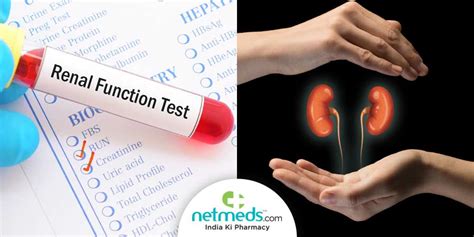
The kidney function tests included in the CMP test measure the levels of waste products in the blood. The BUN test measures the level of urea in the blood, which is a waste product that is normally removed by the kidneys. The creatinine test measures the level of creatinine in the blood, which is a waste product that is normally removed by the kidneys. High levels of BUN or creatinine can indicate kidney disease or kidney failure.
Other Components of the CMP Test
In addition to the electrolytes, glucose, liver function, and kidney function tests, the CMP test may include other measurements. These can include measurements of calcium, phosphorus, and total protein. Calcium is essential for maintaining strong bones, while phosphorus helps regulate various bodily functions. Total protein measures the level of protein in the blood, which can help diagnose conditions such as liver disease or kidney disease.Interpreting the Results of the CMP Test
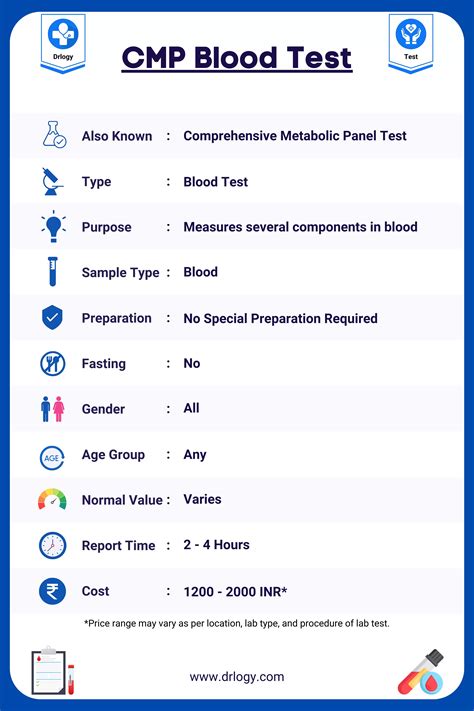
The results of the CMP test can provide valuable insights into a person's metabolic health. Abnormal results can indicate various health conditions, such as diabetes, kidney disease, or liver disease. Healthcare providers can use the results of the CMP test to develop strategies to manage these conditions and prevent complications. It is essential to note that the results of the CMP test should be interpreted in conjunction with other diagnostic tests and medical history.
What Abnormal Results Can Indicate
Abnormal results on the CMP test can indicate various health conditions. For example, high glucose levels can indicate diabetes or prediabetes, while low glucose levels can indicate hypoglycemia. High levels of liver enzymes can indicate liver disease, while high levels of waste products can indicate kidney disease. Abnormal electrolyte levels can indicate dehydration, kidney disease, or hormonal imbalances.Benefits and Limitations of the CMP Test
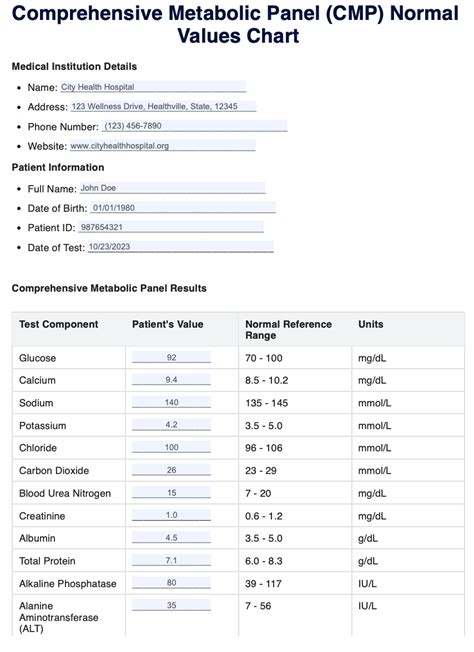
The CMP test has several benefits, including its ability to diagnose and monitor various health conditions. The test is also relatively inexpensive and widely available. However, the CMP test also has some limitations. For example, the test may not detect all cases of kidney disease or liver disease. Additionally, the test may not provide a complete picture of a person's metabolic health, and other diagnostic tests may be necessary to confirm a diagnosis.
Preparation and Procedure
To prepare for the CMP test, individuals should fast for at least 8 hours before the test. This means avoiding food and drink, except for water, during this time. The test is usually performed in the morning, and individuals should arrive at the testing facility with their fasting period complete. The procedure for the CMP test is relatively simple and involves a blood draw from a vein in the arm.Common Questions and Concerns

Individuals may have several questions and concerns about the CMP test. For example, they may wonder what the test can diagnose, how the test is performed, and what the results can indicate. They may also have concerns about the accuracy of the test, the potential risks and complications, and the cost of the test. Healthcare providers can address these questions and concerns by providing clear and concise information about the test.
Risks and Complications
The CMP test is generally a safe and low-risk procedure. However, as with any blood test, there is a small risk of bleeding, bruising, or infection at the injection site. Individuals with certain medical conditions, such as bleeding disorders or kidney disease, may be at higher risk for complications. Healthcare providers can minimize these risks by using proper technique and taking necessary precautions.What is the Comprehensive Metabolic Panel (CMP) test?
+The Comprehensive Metabolic Panel (CMP) test is a blood test that measures various components of the blood, including electrolytes, glucose, and liver and kidney function.
What can the CMP test diagnose?
+The CMP test can diagnose various health conditions, including diabetes, kidney disease, and liver disease.
How is the CMP test performed?
+The CMP test is performed by drawing a blood sample from a vein in the arm, which is then sent to a laboratory for analysis.
What are the benefits and limitations of the CMP test?
+The CMP test has several benefits, including its ability to diagnose and monitor various health conditions. However, the test also has some limitations, such as not detecting all cases of kidney disease or liver disease.
How should I prepare for the CMP test?
+To prepare for the CMP test, individuals should fast for at least 8 hours before the test, avoiding food and drink except for water.
In conclusion, the Comprehensive Metabolic Panel (CMP) test is a valuable tool in healthcare that can provide insights into a person's metabolic health. By understanding the components of the CMP test, its benefits and limitations, and how to prepare for the test, individuals can take an active role in managing their health. If you have any questions or concerns about the CMP test, be sure to speak with your healthcare provider. Share this article with others to help them understand the importance of the CMP test and how it can benefit their health.
